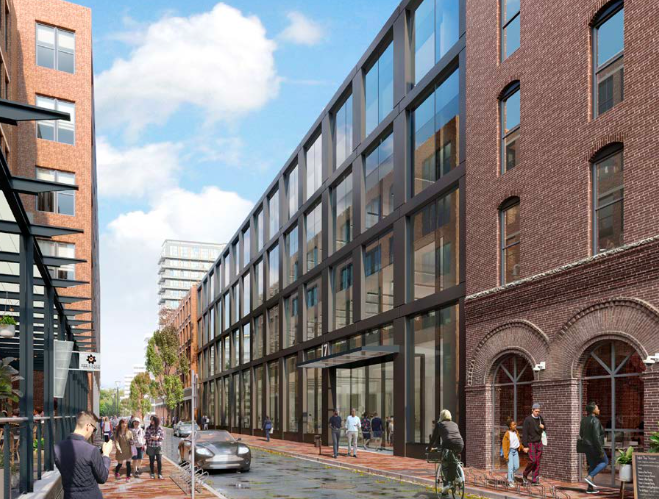There will be a City of Boston Abutters Meeting for proposed changes to 12 - 22 Farnsworth (most popularly known as the building housing Flour Bakery) on:
Monday, January 10, 2022
6:30 pm
View Meeting Broadcast via
Facebook
View Meeting Presentation
In the last quarter of 2021,12 Farnsworth, a six story 59,146-square-foot office/retail property, and adjacent parking lot (11 Sleeper St) sold to San Diego-based Phase 3 Real Estate Partners who plans to convert the office building to Life Sciences labs and offices.
The proposal includes additional roof mechanical equipment related to Life Sciences and slight changes to loading dock, utility upgrades, interior renovations to floors 2 through 6. The restaurant space, Flour Bakery, will remain.
The site is subject to Groundwater Trust Overlay District and Land Subject to Coastal Storm Flowage under Boston Wetlands Protection Ordinance administered by the Boston Conservation Commission and is within the Coastal Flood Resilience Overlay District.

